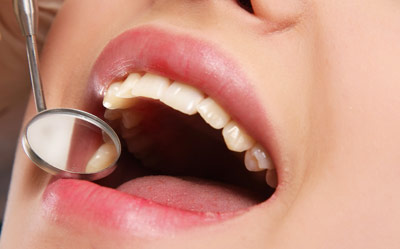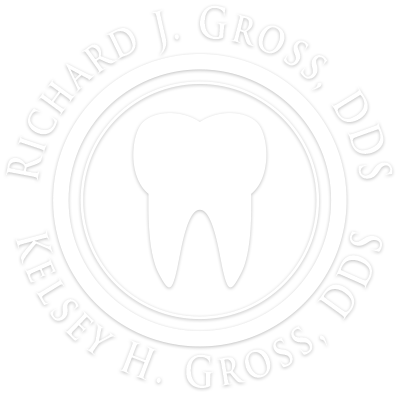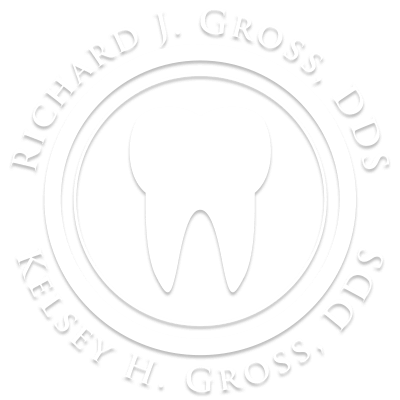Preventative Care:
Comprehensive exam:

Our comprehensive exam will be the most thorough dental exam you’ve ever had! Together, you and one of our doctors will discuss your past dental history and what you would like to achieve from your dental treatment. Our complete clinical examination will include: a medical history review, an evaluation of your gums and the tissues that support your teeth, a yearly oral cancer screening, a look at your chewing muscles, jaw joints, and your bite and how they function together, assessing the health of each of your teeth and determining the need for fillings, crowns, etc, taking all appropriate x-rays and intraoral photos, and evaluating your smile esthetically. Sometimes, impressions and models will be taken of your teeth, along with photos of your smile. Another tool we may use is the diagnodent. This new technology allows us to test the surfaces of your teeth for cavities if there is a suspicious looking area. The diagnodent helps us diagnose cavities noninvasively and ensures that we never drill unless absolutely necessary!
Underlying health problems can show up in your mouth first. There are warning signs before problems start. We do a comprehensive dental exam, because we are not only looking for any concerns with your teeth and gums, but we are looking at your total health - beyond the mouth. Your mouth is a window into the health of the rest of your body. It can show signs of systemic disease or infection before they are visible elsewhere. Regular dental visits will not only help you maintain healthy teeth and gums, but may help you prevent serious health conditions and maintain optimal overall well being.
Dental Cleaning / Hygiene Appointment:

One of the best ways to preserve your smile and maintain your dental health is to get regular dental cleanings with one of our dental hygienists, at least twice per year. Not only will your hygiene appointment leave your teeth feeling squeaky clean, it will also give our doctors the chance to check your teeth and gums. Optimal dental health is a true collaboration between you, your dental hygienist, and your dentist. At each visit, you will enjoy a thorough and caring experience that includes:
- A medical history update (did you know there are hundreds of medications that can cause dry mouth, leading to teeth that are more prone to decay?)
- Any necessary radiographs (x-rays): Usually we take 6 "check-up" x-rays on patients every year. Every five years, we take a full mouth series of x-rays. This includes an x-ray of every tooth in the mouth. A full series of x-rays not only helps us detect cavities, but will also show any pathologies of the bones of the jaws. We use x-rays to diagnose cavities and gum disease that cannot be seen with the naked eye. At our office we use a state-of-the-art digital x-ray system that gives off a fraction of the radiation that traditional film x-rays give.
- A thorough assessment of your oral health: a tooth and gum exam, an evaluation of all existing dental work, including old fillings and crowns, an oral cancer screening, and a discussion about any dental concerns you might be having. Sometimes we may take intraoral photos of your teeth to help you see exactly what we see. Another tool we use is the diagnodent. The diagnodent allows us to diagnose cavities in teeth in a noninvasive and safe way. It is a small light that detects cavities underneath the enamel and is proven to be over 90% accurate in finding tooth decay that would otherwise go unnoticed.
- Periodontal exam: Periodontal disease is an advanced form of gum disease. At least once per year at your hygiene appointment, your hygienist will measure your gum pockets to ensure that your gums and the tissues that support you teeth are healthy. If in-depth periodontal treatments are needed, we will be able to advise you, create a plan, and provide the necessary management and referrals to guarantee your gum health.
- Fluoride: we offer fluoride to any patient, young or old! Traditionally, fluoride is given to children under the age of 18 to aid in strengthening enamel during the development of teeth. Fluoride can also be extremely helpful in preventing cavities in patients who are prone to tooth decay, or patients who are on medications that diminish their saliva production (dry mouth). Ask your hygienist if a Fluoride treatment is right for you!
- Oral hygiene instruction: Our hygienists are trained to give you all the information you could need about keeping your teeth healthy and clean. They will instruct you on how and when to floss, the importance and frequency of brushing, the use of mouthwash and mouth rinses, different flossing alternatives that are on the market, dental sealants, and other preventative measures!
Models, photos, treatment planning:
Following your comprehensive exam, Dr. Gross or Dr. Kelsey may have you return for a records appointment to gather more information for your dental treatment. This may include impressions for models of your teeth, photos of your face and your smile, and a bite registration for a full functional and smile analysis. These extra records will give our doctors valuable information to visualize the size, shape, and color of your teeth and the position of each tooth in your mouth. The photos also give us information on where you teeth are positioned in relation to your lips, cheeks, and gums. Your models and photos will be important reference tools throughout your treatment and will help us communicate our ultimate treatment goals to our dental laboratory. After all of the data is gathered, our doctors will use your models, photos, x-rays, and your personal concerns to develop a treatment plan. This plan will include your personal treatment options that Dr. Gross or Dr. Kelsey will discuss with you.
Sealants:
Dental sealants are a protective coating usually placed on permanent molars to prevent tooth decay. Dr. Gross and Dr. Kelsey will typically place sealants on children and young adults that have deep grooves on their molars, or on patients that are prone to tooth decay. Sealants prevent plaque, sticky foods, and acids from eroding through enamel on molars. Sealants are an easy way to prevent tooth decay and only take a short appointment to apply.

 Make an Appointment
Make an Appointment

